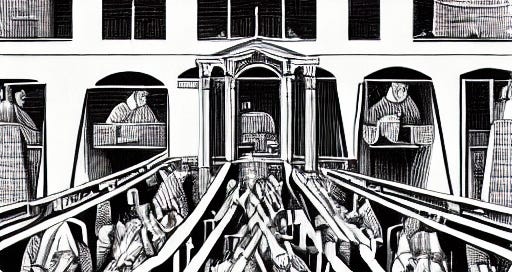Mike Mariani, in a 2018 GQ feature, recounted his conversations with Matthew: “His baroque descriptions sounded like a depraved post-apocalyptic wasteland, one almost cinematic in its gratuitous perils. Listening, I often had no idea where reality ended and grim fantasy began.”
It’s an apt summary, reflecting the same feelings Matthew’s writing gives me. There’s dread, a haze, an overwhelming bleakness. Everyone is an enemy, potentially; everyone is violent. A surreal Blood Meridian.
“I lived in the desert and mountains going through indian reservations leading to mexico called ‘corridors,’” he wrote in April 2022, relating what he remembers of his childhood; “my mother and father knows not much about me.”
Another email directed me to a MySpace page, to an image there; I never found either. “This is the picture of the mother of my child,” Matthew explained, referencing “the cruel subversion caused by this woman and the network who sent her.” This network counted “mercenary contractors” as members, “including possible recruiting of child soldiers in mexico and latin america who are of middle eastern descent or mixed there of.”
Unmoored as these letters are, they also hold moments of stunning lucidity—of historical analysis I feel embarrasses many professional takes. “The laws of this countrie were greatly influenced by slave owners,” he notes, calling the U.S. “a slave island built upon the bones of genocide, where rich Human rights violaters come from around the world and buy citizenship.”
Those with less purchasing power, like Matthew, face the cage.



